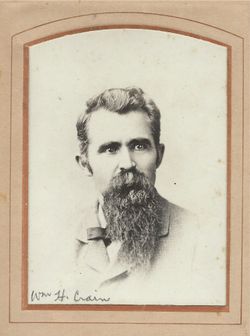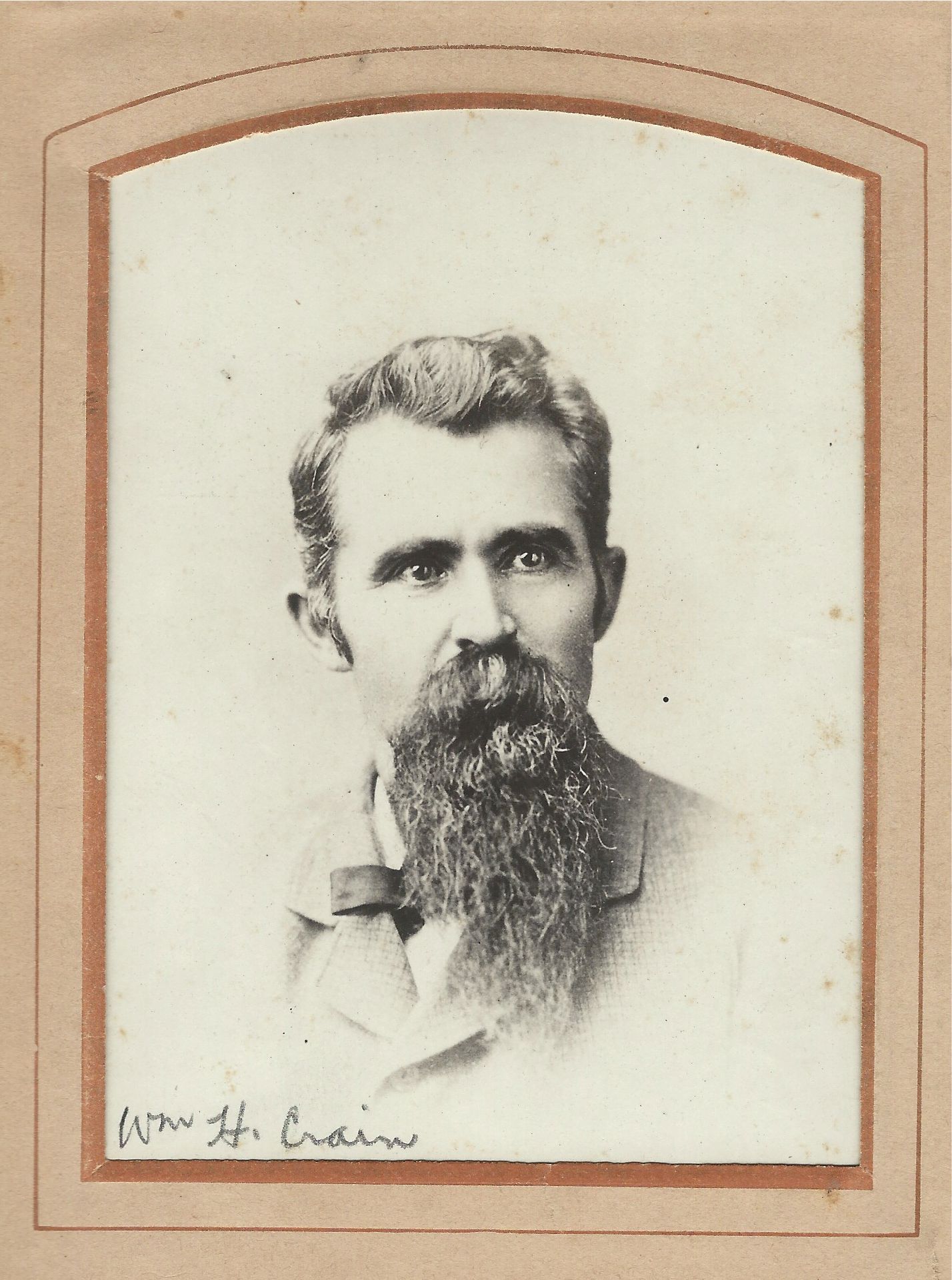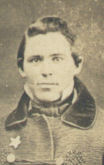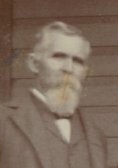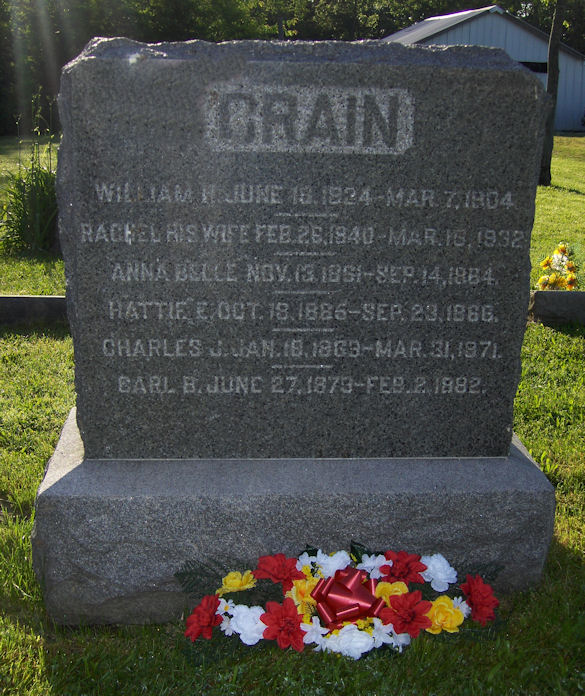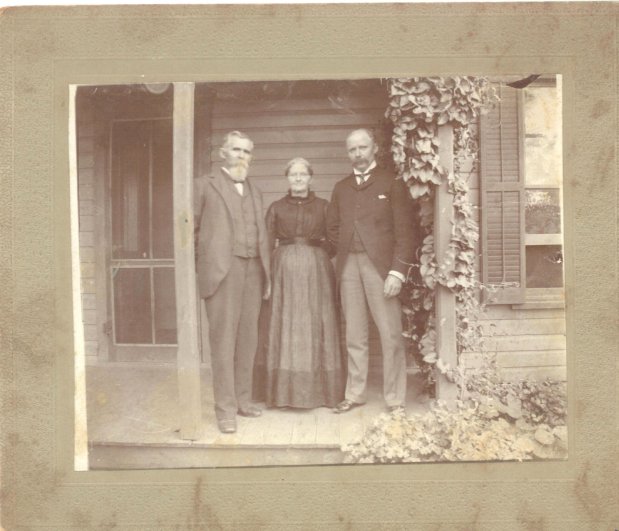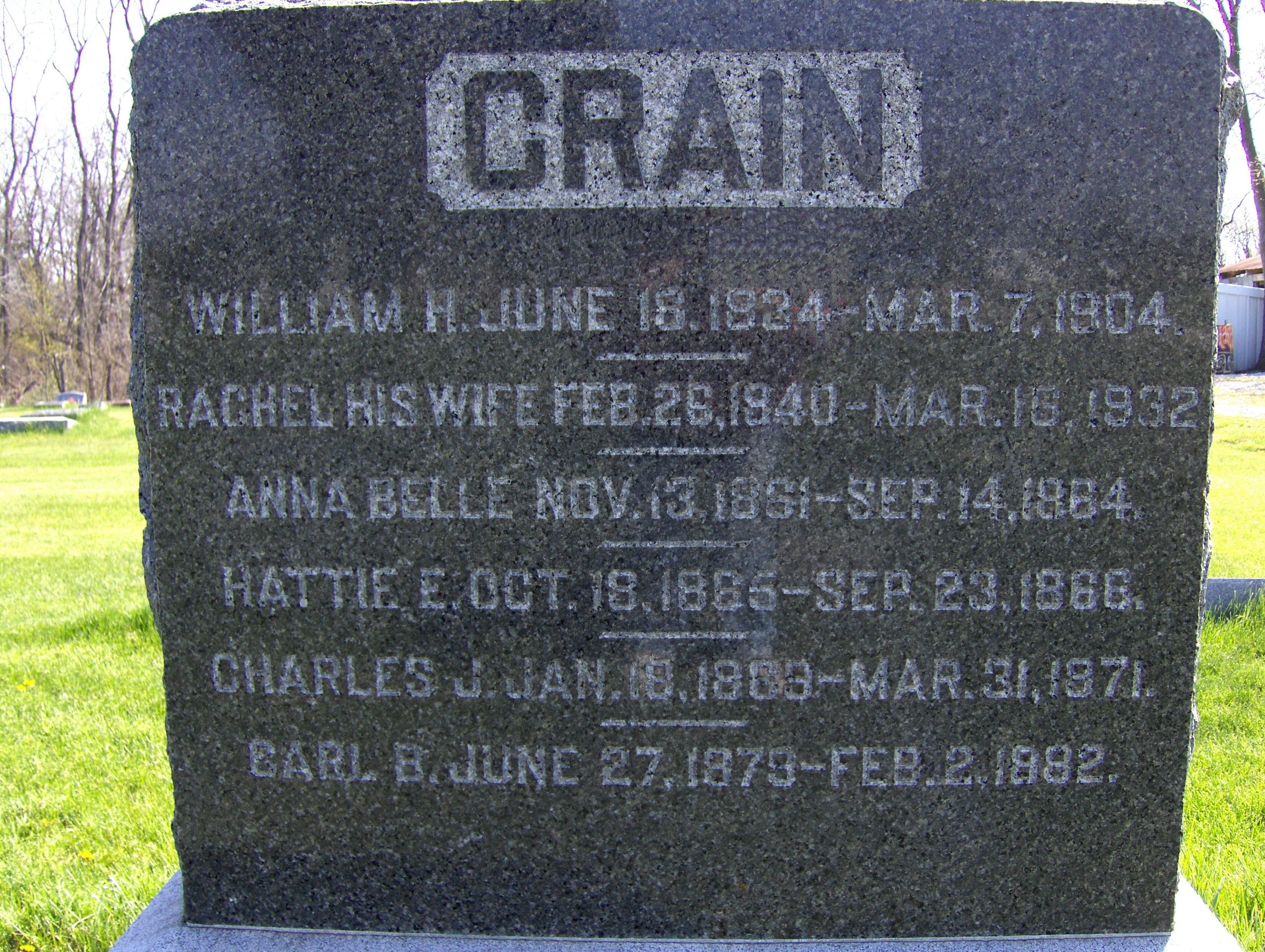(Special to the Quincy Whig) AUGUSTA, Ill., March 7 [1904].--William H. Crain died at his home at 5:30 this morning in his 70th year. He left a widow, one daughter and five sons, of the of the latter served his country in the Phillippines during the past few years. He was born in Jackson, Missouri, and removed with his parents, Rev. and Mrs. Crain, to Huntsville township, Schylyer county, in the spring of 1835. He was a member of the Methodist Episcopal churct at [Pulaski] and held in the highest esteem. SOURCE: "Venerable Citizen of Augusta Dead," newspaper clipping, Frank M. Crain 1949 scrapbook; SMS 2011-08 Tri-County Genealogy Society, Crain Collection, Archives and Special Collections, Western Illinois University, Macomb."William Harris Crain, my father, was born June 16, 1834, six miles west of Jackson, Cape Girardeau County, Missouri, at a place called "Bee." He was brought to Rushville, Illinois, in December, 1834, and in February, 1835, to Section 6, Huntsville Township, where he spent his life, with the exception of a year's residence in Augusta (1898-9). During his boyhood he attended the Gould school south of Pulaski (the location of which school has already been described in the preceding pages), and during the winter of 1855-56 he attended the Rock River Seminary at Mt. Morris, Illinois in company with his brother, James, and his cousin, James Crain McGinnis. He taught school southeast of Huntsville during the winter of 1856-7. On June 7, 1857, father happened to be standing in the door of the blacksmith shop which stood east (handwriting crosses out east and writes west) of the Pulaski store, when the Augusta hotel bus drove through on its way to Huntsville, with a load of newcomers. These were James Baxter and his family, who had just arrived that day from their former home at Carrollton, Ohio. They had spent three weeks on a river steamer on the trip from Wellsville, Ohio, down the Ohio and up the Mississippi to Quincy, and thence to Augusta by rail. Father took special notice of one of the girls and when he went home that evening he surprised the folks by announcing his intention to marrying her if he could. "Where there's a will there's a way," and the wedding took place at the home of the bride's sister, Mrs. Marshall Van Buskirk on North Adams Street, Peoria, Illinois. They made their home for a short time with his parents, then moved to the site of the present Crain home. The house they first occupied had been built by James N. Crain just west of his father's house, and later moved to a point about fifty feet east of Mother's present residence, which was built in 1876.
Father died March 7, 1904, and was buried in Pulaski cemetery."
SOURCE: Excerpt from Ralph Waldo Crain's Pulaski section: Augusta's Story, Martha Board Chapter Daughters of the American Revolution (Augusta, Illinois: Augusta Eagle, 1922).
(Special to the Quincy Whig) AUGUSTA, Ill., March 7 [1904].--William H. Crain died at his home at 5:30 this morning in his 70th year. He left a widow, one daughter and five sons, of the of the latter served his country in the Phillippines during the past few years. He was born in Jackson, Missouri, and removed with his parents, Rev. and Mrs. Crain, to Huntsville township, Schylyer county, in the spring of 1835. He was a member of the Methodist Episcopal churct at [Pulaski] and held in the highest esteem. SOURCE: "Venerable Citizen of Augusta Dead," newspaper clipping, Frank M. Crain 1949 scrapbook; SMS 2011-08 Tri-County Genealogy Society, Crain Collection, Archives and Special Collections, Western Illinois University, Macomb."William Harris Crain, my father, was born June 16, 1834, six miles west of Jackson, Cape Girardeau County, Missouri, at a place called "Bee." He was brought to Rushville, Illinois, in December, 1834, and in February, 1835, to Section 6, Huntsville Township, where he spent his life, with the exception of a year's residence in Augusta (1898-9). During his boyhood he attended the Gould school south of Pulaski (the location of which school has already been described in the preceding pages), and during the winter of 1855-56 he attended the Rock River Seminary at Mt. Morris, Illinois in company with his brother, James, and his cousin, James Crain McGinnis. He taught school southeast of Huntsville during the winter of 1856-7. On June 7, 1857, father happened to be standing in the door of the blacksmith shop which stood east (handwriting crosses out east and writes west) of the Pulaski store, when the Augusta hotel bus drove through on its way to Huntsville, with a load of newcomers. These were James Baxter and his family, who had just arrived that day from their former home at Carrollton, Ohio. They had spent three weeks on a river steamer on the trip from Wellsville, Ohio, down the Ohio and up the Mississippi to Quincy, and thence to Augusta by rail. Father took special notice of one of the girls and when he went home that evening he surprised the folks by announcing his intention to marrying her if he could. "Where there's a will there's a way," and the wedding took place at the home of the bride's sister, Mrs. Marshall Van Buskirk on North Adams Street, Peoria, Illinois. They made their home for a short time with his parents, then moved to the site of the present Crain home. The house they first occupied had been built by James N. Crain just west of his father's house, and later moved to a point about fifty feet east of Mother's present residence, which was built in 1876.
Father died March 7, 1904, and was buried in Pulaski cemetery."
SOURCE: Excerpt from Ralph Waldo Crain's Pulaski section: Augusta's Story, Martha Board Chapter Daughters of the American Revolution (Augusta, Illinois: Augusta Eagle, 1922).
Family Members
-
![]()
James Newfield Crain
1832–1873
-
![]()
John Franklin Crain
1832–1872
-
![]()
Sarah Ellen Maria "Ellen" Crain Ellis
1838–1915
-
![]()
George H Crain
1840–1840
-
![]()
Mary S Crain
1841–1841
-
![]()
Elizabeth F Crain
1843–1843
-
Julia A Crain
1845–1846
-
![]()
Harriet Eliza Crain Kirk
1847–1936
-
![]()
Benjamin Bacon Crain
1851–1946
-
![]()
Henry Clay Crain
1853–1923
-
![]()
Edward Morris Crain
1855–1945
-
![]()
Mary Frances Crain Helmick
1857–1940
